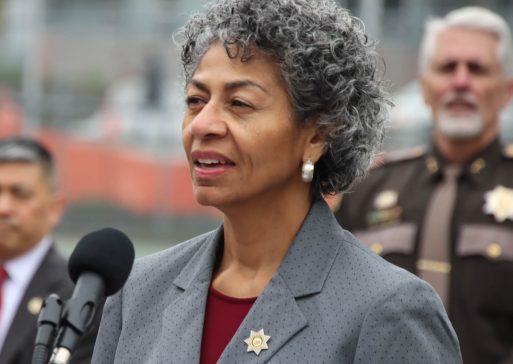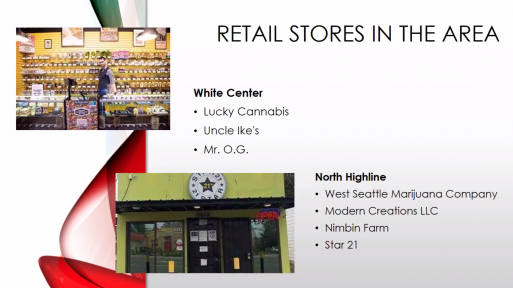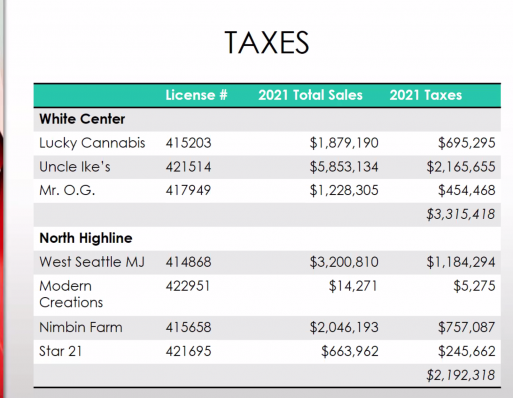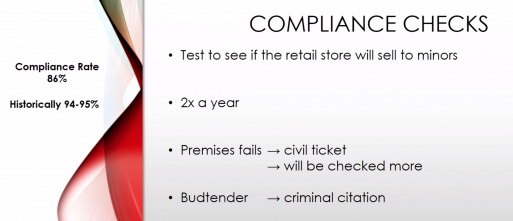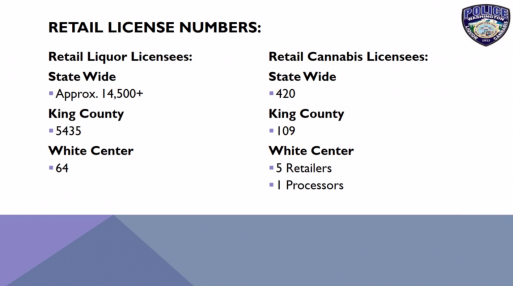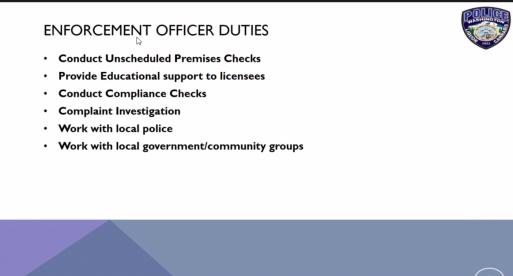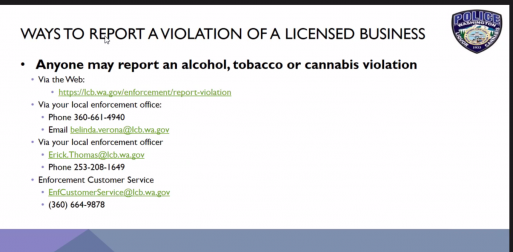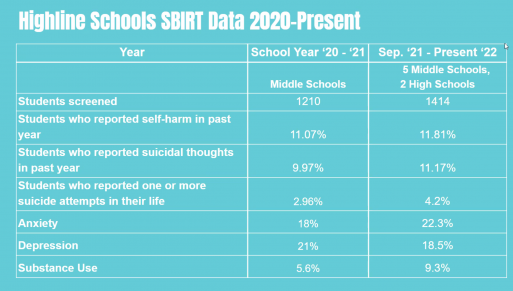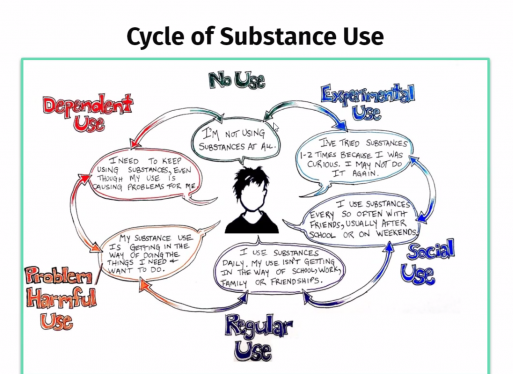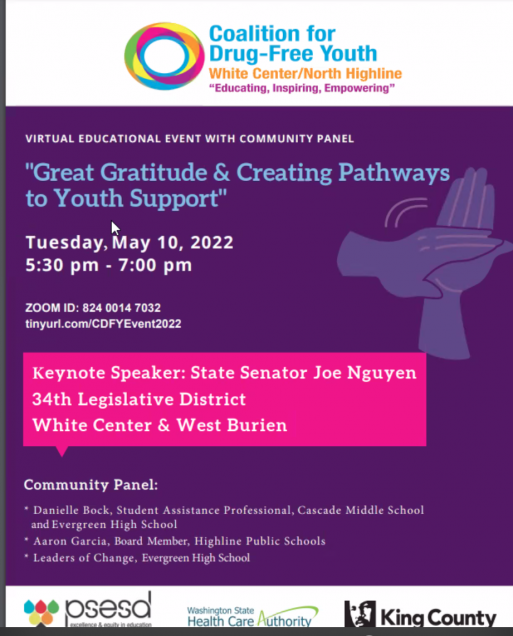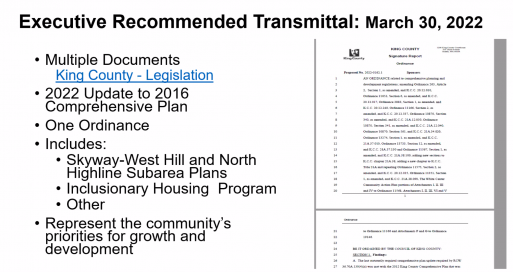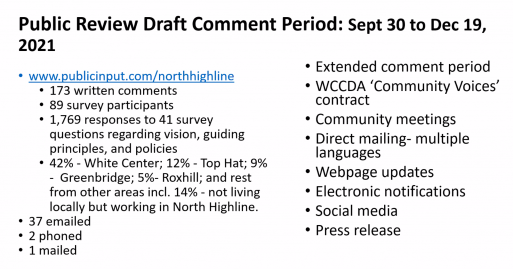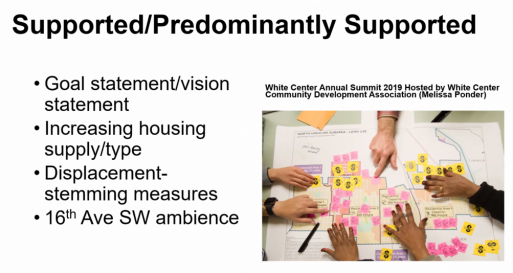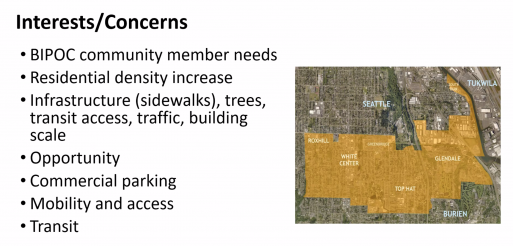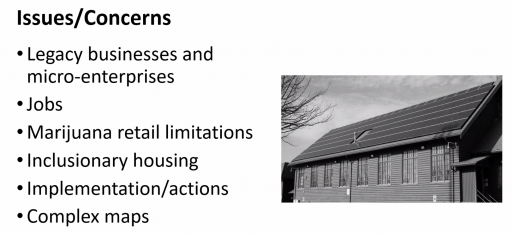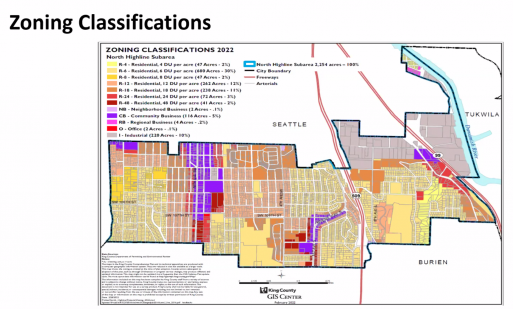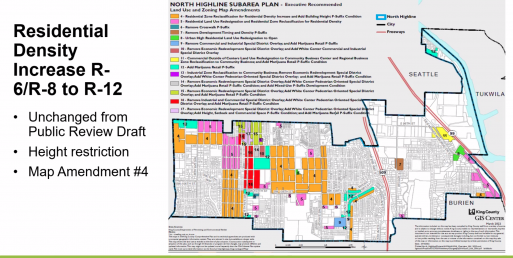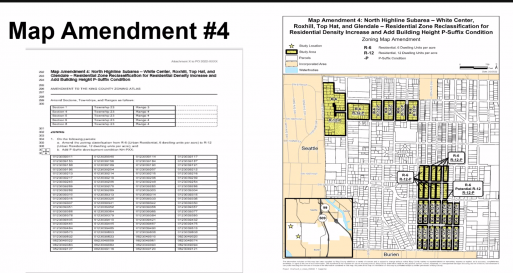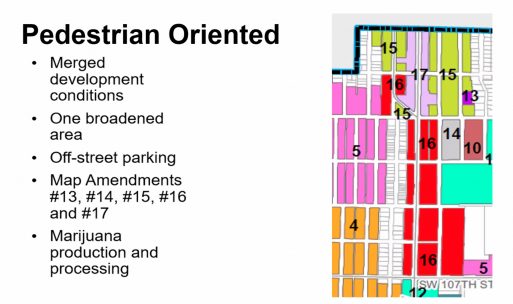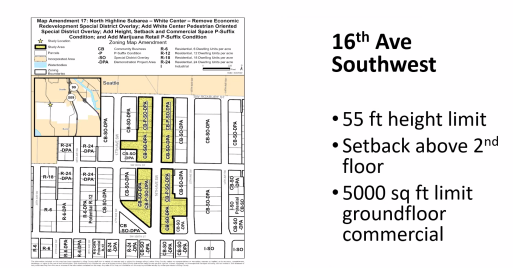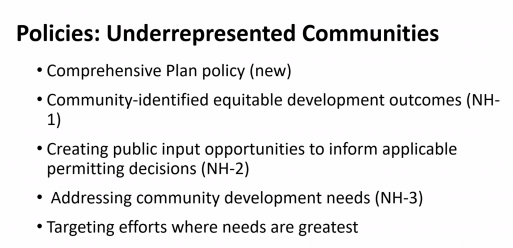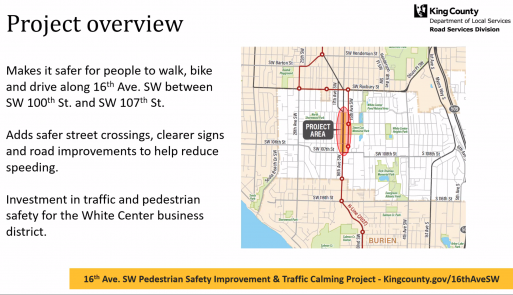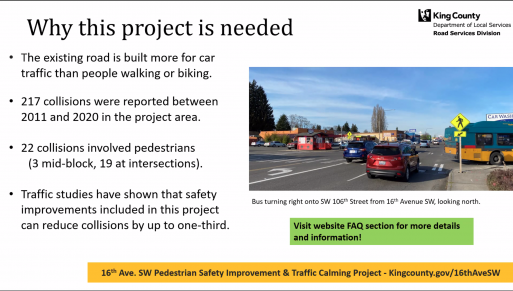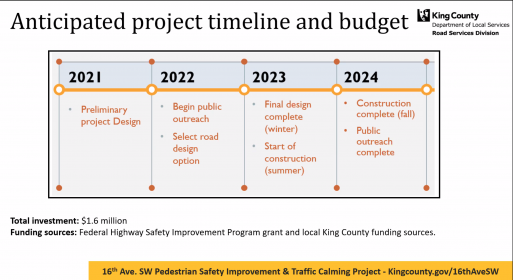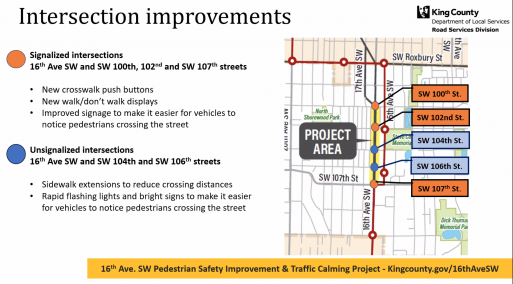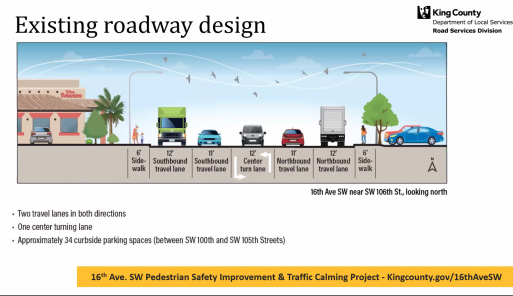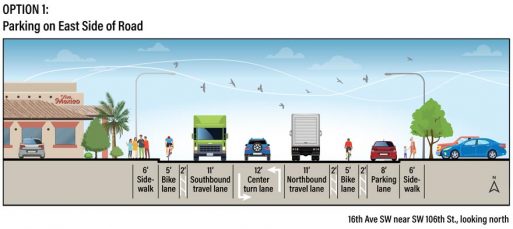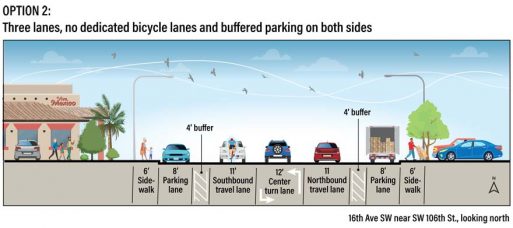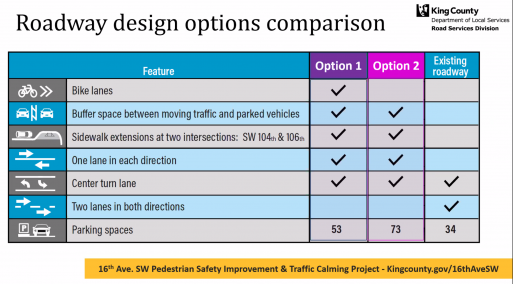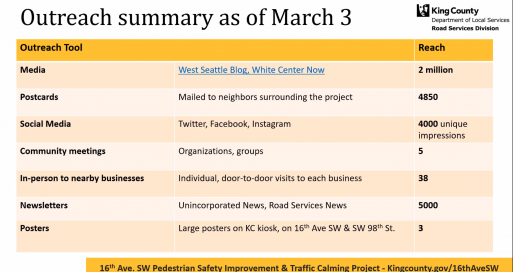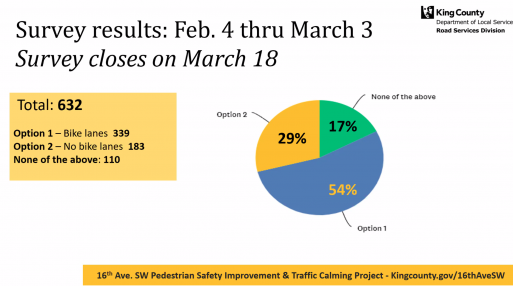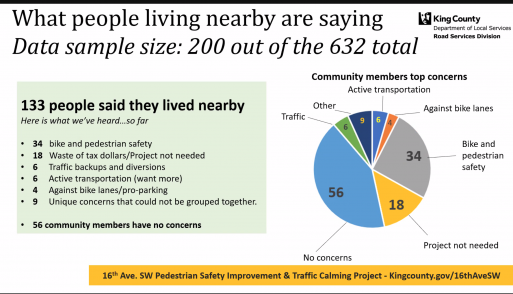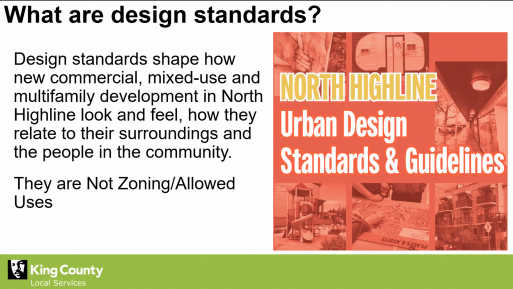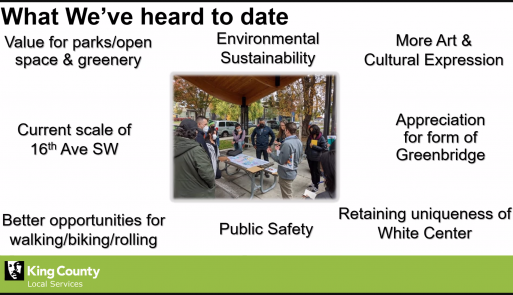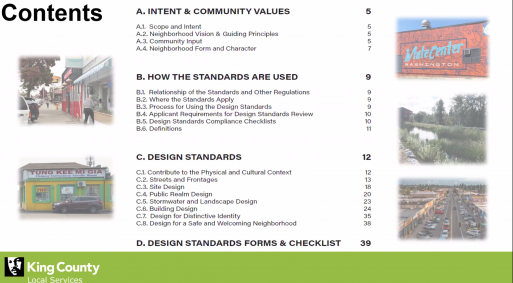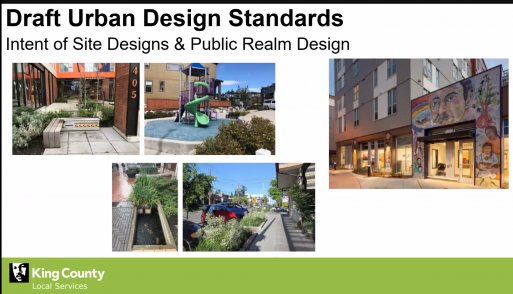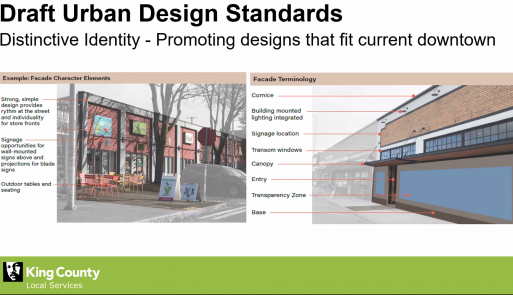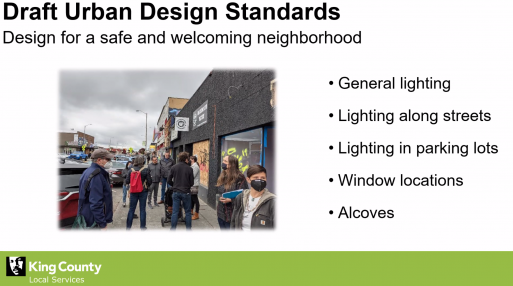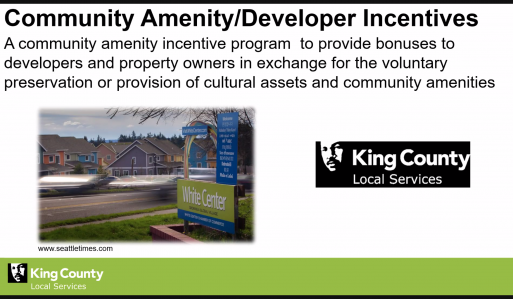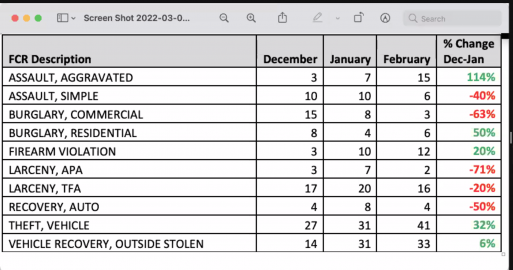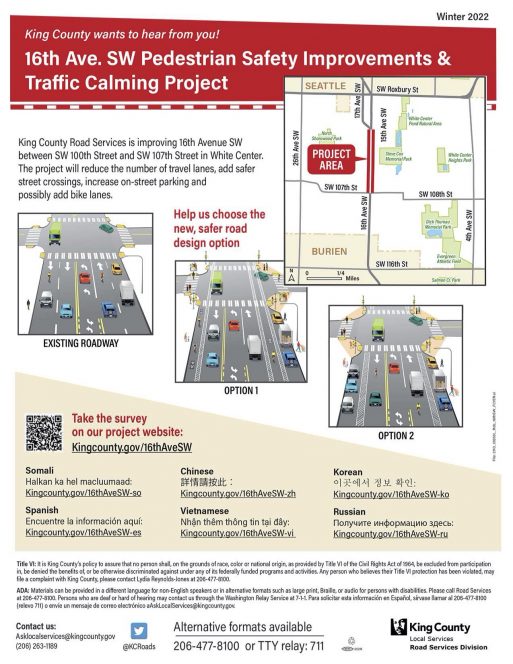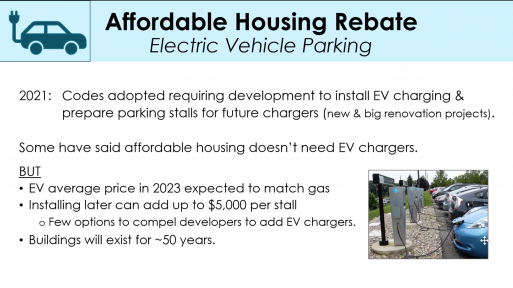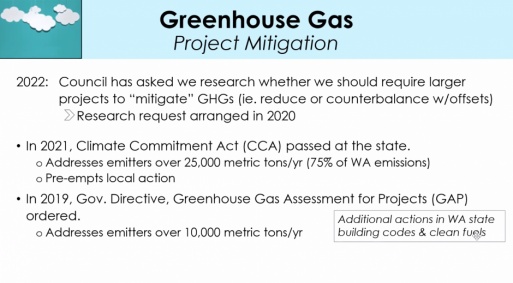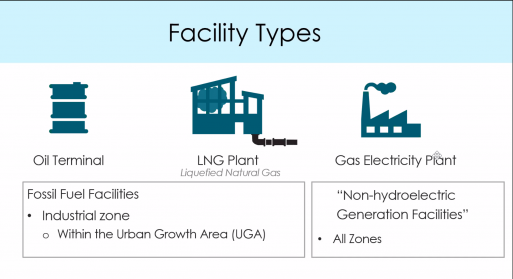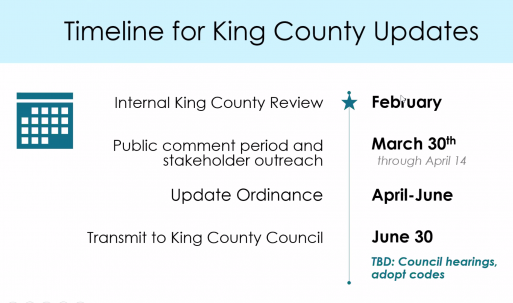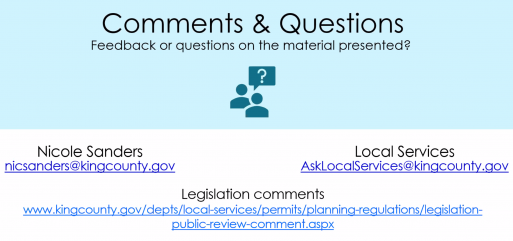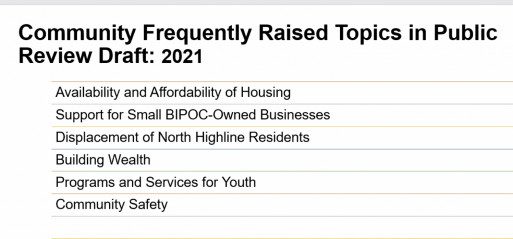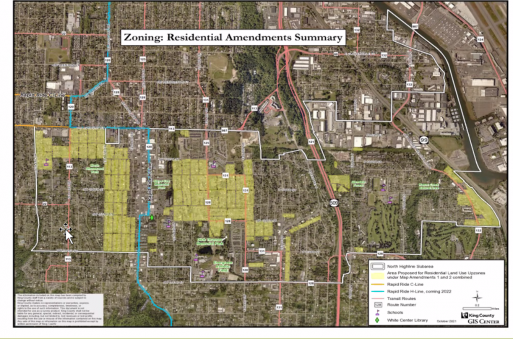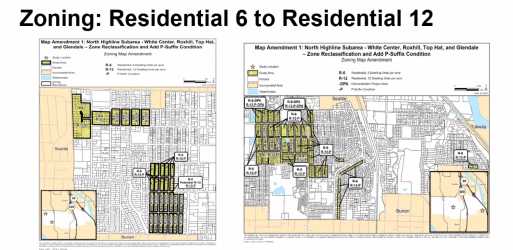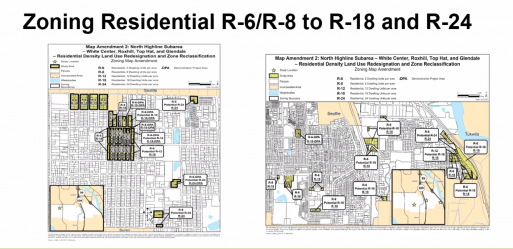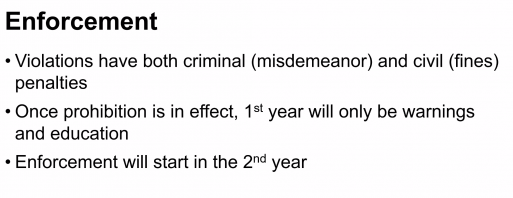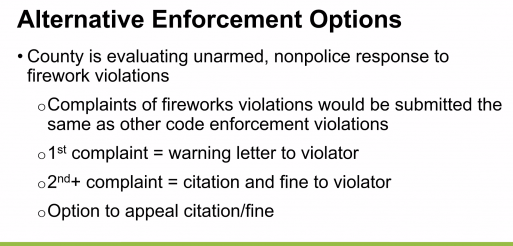By Jason Grotelueschen
Reporting for White Center Now
Neighbors heard from state legislature candidates and discussed a major school levy and local safety concerns at last week’s online meeting of the North Highline Unincorporated Area Council (NHUAC). The meeting was led by NHUAC president Liz Giba and vice president Barbara Dobkin.
First on the agenda was King County Sheriff’s Deputy Bill Kennamer, who noted that it was a “busy summer” in White Center and the surrounding area. He said that most criminal statistics were down compared to last year, but that there has been a “lot of armed robberies, spread all over the place” (11, by his count) in recent months. Issues with “static campers” and tents have also generally improved, he said. However, he also noted that some the statistics are likely down because some residents and business no longer call those in, because they know that currently “those crimes go unpunished.” Kennamer said that due to current restrictions, officers in Seattle and all of unincorporated King County aren’t allowed to directly book people for “quality of life” crimes (like trespassing, graffiti and shoplifting) and nonviolent misdemeanors. Officers in cities like Burien and Seatac can book into the SCORE (South Correctional Entity) jail in Des Moines, but Kennamer said that isn’t an option for him for the county jail until the governor’s emergency orders expire. For example, businesses “don’t call whenever something gets stolen,” he said, “I can write a case report and send it to the prosecutor’s office, but I can’t take that person to jail, which is frustrating.”
Kennamer added that despite the limitations, residents should always call 911 if they see something suspicious. Participants in the meeting brought up some recent examples in which individuals were suspicious and/or threatening in parks and public areas, and Kennamer stressed that even if dispatchers and officers aren’t always able to fully take action, it’s crucial for neighbors to call it in so there’s a record of it. He added that with regard to homeless activity in the area, there was recently a leadership change with the county’s Law Enforcement Assisted Diversion (LEAD) program, and this program has been a useful tool. He said that with winter coming soon, it’s important to encourage to encourage homeless individuals to seek out and accept (which they sometimes don’t) options for housing. Kennamer also said that officers have made progress, with the community’s help, as it relates to “drug houses” and properties that have had issues with criminal activity, as well as problematic encampments, but it’s important for the community to keep calling in things that they see.
Next on the meeting agenda was an overview by Vicki Fisher, longtime principal with Highline Public Schools, about Proposition 1: Highline Public Schools Bond which is on the ballot next month. The bond would provide funds to rebuild three aging schools (Evergreen High School and Tyee High School by 2025, and Pacific Middle School by 2027) as well as supporting repairs at schools across the district. Passing the bond will require at least 60% approval from voters, Fisher said, and involves a $518 million price tag but will not increase the tax rate (due in large part to other expiring levies and bonds).
Fisher began by clarifying the difference between levies and bonds: “Levies are for learning (LL), and bonds are for buildings (BB),” she said, adding that levies are asking the community to support things for learning like books, tech, and specialized instruction, while bonds such as Proposition 1 are for capital projects such as replacing schools and providing repairs for buildings.
Fisher said that the three impacted high schools were built in the 1950s and 1960s and are generally very outdated (this was confirmed by several meeting attendees who shared anecdotes about friends and family attending the schools decades ago, and noted that repairs were needed even then). If the bond is approved, Fisher said, the projects will proceed quickly because they are “shovel ready” due architectural design work that was already completed thanks to funding that was approved in 2016. Fisher added that this work is important in order to provide a great high school experience across the entire district, bringing the three schools up to the same standards as the more recently improved Mt. Rainier and Highline schools.
In response to a question about where students at Evergreen would go during construction, Fisher said that because of the large size of the Evergreen campus, students can stay in the existing buildings while construction is completed elsewhere on the property, and then after they move into the new building in 2025, the existing buildings will be demolished and landscape work will be completed. Fisher encouraged voters to visit the Proposition 1 website for more information, and to vote on November 8.
The remainder of the meeting was a forum for State House candidates Leah Griffin and Emily Alvarado, who advanced in the August primary election for the 34th Legislative District “Position 1” seat which is open because State Rep. Eileen Cody is retiring (West Seattle Blog article here) after 27 years. (For “Position 2” in the 34th, Joe Fitzgibbon is the incumbent running for reelection against Andrew Pilloud, while Joe Nguyen is the State Senate incumbent for the 34th, running against John Potter.) The 34th covers all of West Seattle and Vashon Island, White Center, and west Burien.
Griffin and Alvarado (see WSB reports about their campaign announcements here and here) were given time in the meeting to make statements as well as answer questions from meeting attendees. Both candidates are Democrats, and reside in West Seattle area.
In her opening statement, Griffin described her professional background as a librarian and teacher of information literacy (currently at University Prep in northeast Seattle), and her focus on public service particularly in the past 8 years. From her March 2022 campaign announcement:
 Griffin is a certificated school librarian who works on sexual assault policy reform at the state and federal levels. After being raped by a man in her neighborhood in 2014 and seeing how broken the system is for survivors, Griffin knew she had to do something to make things better for other survivors. In 2015, she was appointed to the Sexual Assault Forensic Examination (SAFE) Task Force in the Washington legislature with the aim of solving the myriad of problems survivors encounter navigating the justice system in Washington State.
Griffin is a certificated school librarian who works on sexual assault policy reform at the state and federal levels. After being raped by a man in her neighborhood in 2014 and seeing how broken the system is for survivors, Griffin knew she had to do something to make things better for other survivors. In 2015, she was appointed to the Sexual Assault Forensic Examination (SAFE) Task Force in the Washington legislature with the aim of solving the myriad of problems survivors encounter navigating the justice system in Washington State.
As a representative of survivors, Griffin significantly contributed to the passage of HB1068, to test new rape kits, HB1109 to increase trauma informed interviewing techniques for police, HB2530 to track rape kits through the system, SB1539 to prevent child sexual assault, SB5649 to increase the statute of limitations for rape, and HB1109 to fund and test all untested rape kits in Washington, HB2318 to store unreported kits, and amend the legal definition of rape kits, and SB6158 to create model sexual assault protocols for hospitals.
She also helped write and lobby for the Survivors’ Access to Supportive Care Act with Senator Murray and Representative Jayapal to increase access to Sexual Assault Nurse Examiners in hospitals. Leah connects her work to her community by working with the King County Sexual Assault Resource Center, Legal Voice, RISE, Planned Parenthood Votes Northwest, and the Washington Library Association. She sits on the board of the Sexual Violence Law Center.
Griffin noted that she heard about Eileen Cody’s retirement the day after her bill was signed, and knew that she needed to take the next step.
In Alvarado’s opening statement, she touted her deep experience in the area of affordable housing, as a leader at the City of Seattle Office of Housing, and currently as a a vice president with the housing nonprofit Enterprise Community Partners. From her April 2022 campaign announcement:
“ For more than a decade, I have worked collaboratively to create affordable housing throughout our region, championing policies and investments that foster inclusive, healthy communities and reduce homelessness. … Everyone deserves quality, affordable housing, education and health care, in a safe, thriving community.”
For more than a decade, I have worked collaboratively to create affordable housing throughout our region, championing policies and investments that foster inclusive, healthy communities and reduce homelessness. … Everyone deserves quality, affordable housing, education and health care, in a safe, thriving community.”
The announcement also describes Alvarado as “an attorney, coalition-builder and former community organizer” who “has fought for reproductive justice, equitable community development, and economic opportunity.”
Alvarado described herself as a tireless advocate for building stronger communities, while spending her “whole life in public service.” She emphasized her strong performance in the August primaries and her breadth of endorsements.
Liz Giba from NHUAC then asked the candidates how much interaction they had with North Highline prior to the campaign. Alvarado, who lives in West Seattle, said that the oldest of her two children plays Highline soccer, and she spends a lot of quality time in the parks and businesses in and around White Center. Griffin, who lives nearby in Highland Park, said that she walks to the “main strip” in White Center almost every day, and did her student teaching in 2008 at Highline High School and worked at Noble Barton for a time.
Giba then shared some data from the North Highline Health Reporting Area (HRA) showing some of the extreme economic and societal challenges that neighbors face. When ranked against other areas, North Highline was #1 or #2 as it relates to poverty, reliance on food stamps, lack of secondary/advanced education, firearm deaths, lack of insurance, and other factors. Giba asked the candidates for their thoughts on the data, and asked what they would do about it if elected. Griffin said that the statistics definitely underscore historical issues with race in the area, and that “acknowledging that is important, but now what do we do about it?” She recalled that when she taught at Highline, there were actually incentives in place to make the smallest number of photocopies for educational resources, and that she encountered issues with staff support as a librarian in the past (not an issue in her current school, which has lots of resources, but she said “every student in Washington deserves that.” Alvarado said that “the data is terrible and damning, but not surprising, because place-based poverty is all over.” She reiterated that this has been a huge area of focus in her career, and would continue to be so in Olympia. She talked about the necessary blend of having safe housing, economic opportunity access to child care and small-business assistance. She stressed that “this is not about the people here — they’ve just been denied opportunity.”
In response to these comments, Giba drilled a little deeper and said that she heard both candidates saying that we need better programs and more money in North Highline, but that this has been said for years, and she wonders if the problems are more about the local concentration of low-incoming housing. Alvarado agreed that when you have more low-income housing in your community then you’d obviously expect the statistics to reflect that, but that when she thinks about this in the context of surrounding areas and a country that has massive wealth disparity, it’s even more of a testament of deprivation of resources in a community that could be changed. Griffin said one of the things being discussed is the need for more housing, noting that we’re “250,000 units short” to meet housing needs in Washington state, which seems to make the case for increasing density, but it needs to be equitable density (not just in areas that already have the vast majority of low-income housing). Alvarado added that we need more housing choices in all communities,, and in places that have higher rates of poverty we need more strategies to grow generational wealth. She added that in North Highline, home ownership rates are much lower than the King County average, especially for Latinos, and that we need targeted strategies for pathways to owning houses and businesses.
Giba presented some additional data, regarding significant disparities in educational opportunities and outcomes for students in the area (particularly White Center Heights school) compared to other areas in King County. Giba said “even if you put money in neighborhood, if you still have kids struggling at home,” and she asked for the candidates’ input. Alvarado agreed that when you have a lot of students in poverty in a single school, it’s challenging, but noted that “if you give those kids the best teachers and resources then they can be high-quality learners having high-quality experiences.” Griffin said that she agreed with Alvarado that we can invest in schools in a way that gives students what they need, adding that we “have a paramount duty to fund education. Schools without nurses, social workers, librarians, paraprofessionals and testing — those aren’t fully-funded schools.” Griffin added “there’s a lot we can do to look at revenue and upside-down tax structure, and find resources to make sure every school in the state is fully-funded.” Alvarado noted that with regard to schools in which multiple languages are spoken, “that’s an asset, not a deficit, in our world and our economy.”
NHUAC’s Barbara Dobkin noted that North Highline isn’t an area in which “redlining” was a problem; the issue was that people with less economic means “were pushed here, where Section 8 vouchers could be used.” Alvarado mentioned a few barriers to having affordable housing be more equitable across the county: 1) restrictions in family zoning, which are exclusionary, 2) we need more affordable housing resources, or there is scarcity, and we can’t reward behavior of developers only building affordable house where it’s inexpensive to do so, and 3) displacement must be addressed, with regarding to rising rents. Griffin agreed, and with regard to rent prices, noted that when she purchased a home in Highland Park it was “one of the very last HUD houses; my mortgage here is less than many friends pay in rent” and we need to increase the stock of homes. Griffin added that it’s important to make sure seniors aren’t displaced, and have a place to scale down.
Dobkin pressed the candidates on some of their comments, saying “I hate to sound jaded, but having lived in community for 20 years, we’ve heard the same things, yet schools have not progressed and things haven’t improved.” She said “millions in grants and money hasn’t helped, and it’s hard to hear same things over again,” and noted that King County representatives have even said in NHUAC meetings that “they build tax-exempt housing here because it’s cheaper.” Alvarado said she appreciated the comment, and said “these are deep, hard and somewhat intractable issues” and the pandemic has only made things harder. She asked what immediate policies the group thought could have an impact on quality of life. Giba said the county is in the process of adopting the North Highline Subarea Plan, which will increase density “even though our current infrastructure is really lacking, like stormwater, sidewalks and parks.” Griffin said “I hear you, and areas of investment need to happen” and added that it’s crucial to improve aid to small businesses in White Center. She mentioned last week’s announcement of the City of Seattle’s Storefront Repair Fund involving $2,000 grants to assist businesses with propery repairs (paid for by $2 million in federal funds), and noted that expanding similar programs to White Center is necessary. She mentioned the impact of the numerous fires at White Center businesses, saying “they still haven’t recovered, and I would support that funding to help.” Alvarez added that “North Highline deserves services for quality of life. Government can’t just be about big policies, it has to be about delivering services.”
Giba asked about the overall importance of public safety. Griffin noted that this is something she cares deeply about, as someone who was “personally impacted by a violent crime, but then encountered broken systems that didn’t work.” She said that she toured the Monroe correctional facility a couple of years ago, and encountered inmates laboring for 42 cents an hour, which “broke my heart and changed my mind about the justice system. Now we have a system based on punishment, but if we want to address the issues then we need it to be based on rehab and reform.” Alvardo said that she believes that everyone deserves to be safe in our communities, and we need to address and tackle issues of public safety. She added that “in King County, we don’t have a place to bring people who are in crisis, and we need a good strong real relationship with the police who are doing hard work out there.” She said there’s a need to rebuild the partnership and trust between the community and law enforcement.
In closing, Griffin thanked attendees for coming to the meeting, and said she is running for office “because I believe the stories of people in our community matter.” She added that “I love White Center, this is my home, and I’m grateful to talk to you about improving outcomes for all of us.” Alvarado thanked NHUAC for the opportunity to get together, and said she believes “that everyone should have a strong foundation in life, a strong community, and together we can do it.” She said it’s hard work and that she is “pragmatic but hopeful” in the goal of not leaving anyone behind.
As the meeting drew to a close, Darlene from the “log cabin” (the community center at Steve Cox Memorial Park) also shared some updates from King County Parks and the White Center Teen Program:
1. Our Recreation Aides put together a highlights video from the 2022 Summer Sack Lunch Program that ran out of both Thurnau Memorial Park and Steve Cox Memorial Park: https://youtu.be/N6e0AdPkMwU
2. The Annual Outdoor Halloween Carnival is coming up on Saturday, October 29th from 2-5pm at Steve Cox Memorial Park.
The social-media page for the carnival is here.
NEXT MEETING: NHUAC usually meets on first Thursdays, so the next meeting would be November 3rd.

 Griffin is a certificated school librarian who works on sexual assault policy reform at the state and federal levels. After being raped by a man in her neighborhood in 2014 and seeing how broken the system is for survivors, Griffin knew she had to do something to make things better for other survivors. In 2015, she was appointed to the Sexual Assault Forensic Examination (SAFE) Task Force in the Washington legislature with the aim of solving the myriad of problems survivors encounter navigating the justice system in Washington State.
Griffin is a certificated school librarian who works on sexual assault policy reform at the state and federal levels. After being raped by a man in her neighborhood in 2014 and seeing how broken the system is for survivors, Griffin knew she had to do something to make things better for other survivors. In 2015, she was appointed to the Sexual Assault Forensic Examination (SAFE) Task Force in the Washington legislature with the aim of solving the myriad of problems survivors encounter navigating the justice system in Washington State. For more than a decade, I have worked collaboratively to create affordable housing throughout our region, championing policies and investments that foster inclusive, healthy communities and reduce homelessness. … Everyone deserves quality, affordable housing, education and health care, in a safe, thriving community.”
For more than a decade, I have worked collaboratively to create affordable housing throughout our region, championing policies and investments that foster inclusive, healthy communities and reduce homelessness. … Everyone deserves quality, affordable housing, education and health care, in a safe, thriving community.”